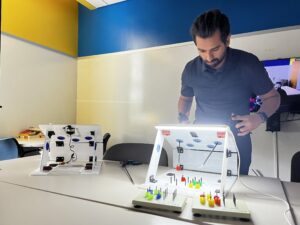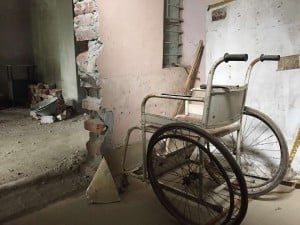Innovative Device Design
An intensive, hands-on engineering device design experience is central to the CBID program. Armed with insight gained at Johns Hopkins Hospital and during travel to low-resource parts of the world, student teams select a project and get to work. Clinical impact, commercial viability, and technical feasibility are all scrutinized, along with the all-important target users (clinician, hospital, or patient). Business plays an important role, too. Teams develop a commercialization strategy that includes regulatory process planning, patent searches, and getting the prototype to market via a startup business or licensing. CBID relationships with industry leaders provide students with key entrepreneurial and device commercialization skills through the program.
“Connections to clinicians, entrepreneurs, and investors—plus the mindset that there is no reason why a team of people in their young to mid-20s can’t create something truly worthwhile. That’s why I chose CBID,” says Kevin Colbert, MSE CBID alumnus.
Founding a medtech startup is a very real possibility for CBID graduates. Michael Parlato, an MSE CBID alum, comments, “I would recommend CBID to anyone interested in running a company or getting a taste for every aspect of medtech innovation. CBID can give students access to the resources necessary to make a medical device startup successful.”




